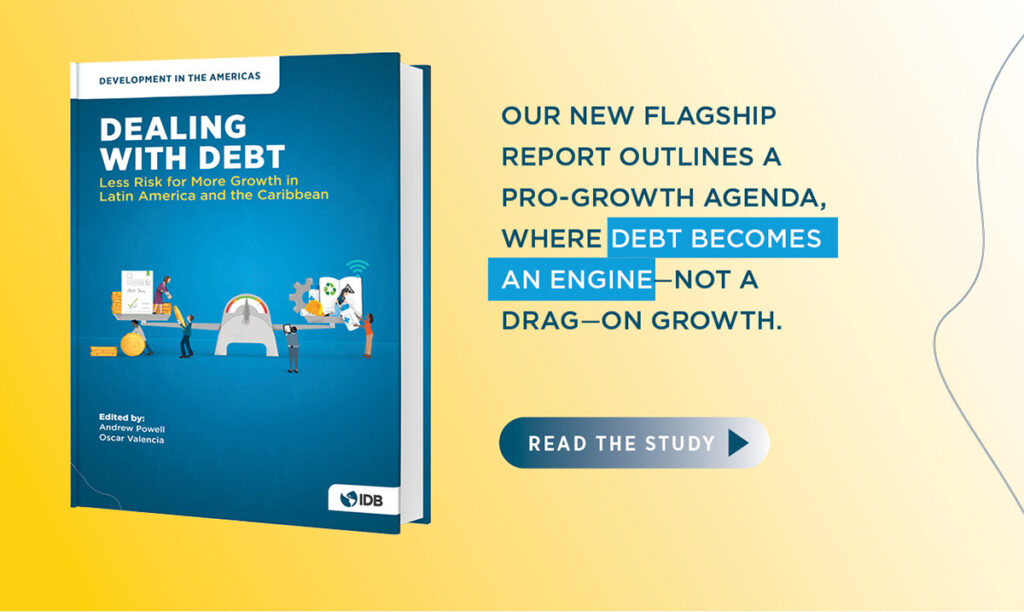
Small and medium-sized enterprises (SMEs) comprise the overwhelming majority of formal businesses and create around half of formal employment for the average country in Latin America and the Caribbean, with that percentage rising to 80% in some cases. Yet, despite their immense importance to the economy of the region, these firms consistently struggle to get access to credit and often find it burdensome and costly when they do.
The resulting scarcity of resources for SMEs is a drag on their ability to invest, grow, innovate, and create high quality jobs. Almost a quarter of firms in the region, both large and small, identified lack of financing before the COVID-19 pandemic as a major constraint, more than in advanced economies or Emerging Asia. For micro, small and medium-sized enterprises or (MSMEs), the problem is particularly severe, with a financial gap of $1.8 trillion gap between demand and supply, according to some estimates, or more than five times the current supply.
Structural Problems
This creates serious structural problems. Larger firms in the region are better able to finance long-term investments with long-term financing. But SMEs must fund a larger share of long-term investments with short-term financing, often from their own suppliers. Even though SMEs make use of internal funds (generally, retained earnings) as much as large firms, they also tend to be more exposed to and have fewer tools to manage shocks. This makes their earnings more volatile than their larger counterparts.
The region need not resign itself to these limitations. As we suggest in a chapter on private debt in the IDB’s recently released flagship report “Dealing with Debt,” there are regulatory and other reforms, as well as improvements within the private sector to banking practices, financial technologies (Fintechs), and capital markets, that could help open the spigots to SME financing, helping to make those firms more productive and stable.

SMEs get less than 20% of their funding from banks (including their own internal sources), and could increase that if information asymmetries (e.g., information known to the firm, but hard to prove to the bank) were eased. Regulations providing for the establishment of good credit bureaus, for example, would make it easier for banks to ascertain whether a loan applicant were credit worthy. So would reforms creating or improving secured-transactions laws and banking practices that allow banks to accept movable assets (such as inventories, receivables, machinery and equipment) as collateral. Gathering the information they need to evaluate a potential SME client takes banks — and other companies providing loans in the private sector — too much time and money, and reforms streamlining that process should make them less risk averse.
Gender Discrimination and Credit
Gender discrimination is also a problem that needs to be addressed. As a recent study in Chile revealed, women with identical characteristics to men, including credit history, were 18% less likely to have their loan applications approved, with more discrimination at banks with a higher proportion of male officers. Analysis done in 13 Caribbean countries during the pandemic revealed that female-managed companies were five percentage points more likely to identify access to finance as a major constraint than male-managed ones even when accounting for the size, age, economic activity and location of the firm. Gender discrimination is offensive in-and-of-itself. But it is a serious problem for female-owned and managed SMEs and therefore for investment and growth in the region. One of the solutions to this problem would be to hire more female loan officers. Reforms to lower the cost of entry to new banks, and thus ensure more competition could also make a sizable difference, imposing a penalty in profits on institutions that cling to chauvinistic practices. Promoting new avenues for funding for female-led firms (which will increase competition in this market) would also contribute toward that goal.
The entry into the financial system of more Fintechs could help. It could serve to open up the system if regulatory reforms permitted it. Fintech companies collect new and more novel types of data, including non-financial information. Some of these companies use innovative ways to analyze credit risks, potentially reducing both gender discrimination and information asymmetries, and facilitating their expansion of credit to companies that lack access to traditional bank finance or find it prohibitively expensive. Indeed, despite the largely digital interaction, some 95% of surveyed firms (out of a sample of 550) in a University of Cambridge study said Fintechs reacted quickly to provide financial resources and 90% of them reported better customer service than at traditional financial institutions. Regulations, of course, need to ensure standards for consumer protection and financial stability. But they should also encourage the entry of new lenders, like Fintechs, not least because recent studies show that SMEs become more efficient and earn higher revenues after receiving Fintech financing.
The Problem of Savings
The region’s financial sector is too limited, with too few savings for lending and costs for borrowers that are too high. Governments should enact reforms that make it easier for financial institutions to absorb savings, while creating more competition in the financial sector and better information flows. They should also consider providing banks with guarantees that make them more willing to expand lending to SMEs. Capital markets, which function mostly for a few large companies, could also play a role if policy changes made them more favorable to SMEs and corporate governance at SMEs were improved so as to make them more credible to the buyers of stocks and bonds.
Companies in the region that had access to credit during the COVID-19 pandemic were more likely to survive, just as they are more likely to thrive in less traumatic times. Regulatory, policy and other reforms, as well as the provision (or expansion) of guarantees and other private sector tools that facilitate credit to the immense economic sector represented by SMEs, will be a boon to the firms themselves and to the economy as a whole.


Leave a Reply